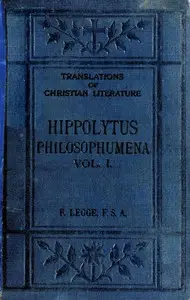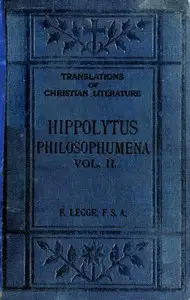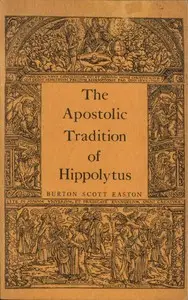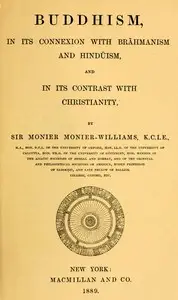"Philosophumena; or, The refutation of all heresies, Volume I" by Antipope Hippolytus is a scholarly work purportedly written in the early 3rd century AD. This text aims to systematically confront and refute various heresies and philosophies that emerged in the early Christian era, providing insight into the beliefs that challenged orthodox Christianity. Through historical and philosophical analysis, it engages deeply with Gnostic traditions and other competing ideologies of the time. The opening of this work introduces its ambitious goal and sets the stage for a rigorous examination of the philosophical traditions that influenced early heretical movements. With a particular focus on Greek philosophy, Hippolytus outlines the foundational beliefs of notable philosophers such as Thales, Pythagoras, and Empedocles, laying the groundwork for his argument that these ideas provided a basis for the development of heretical thought. He emphasizes the intent to expose and critique the theological implications behind these philosophies, signaling a critical inquiry that intertwines the development of early Christian doctrine with the prevailing intellectual currents of the time. (This is an automatically generated summary.)

Philosophumena; or, The refutation of all heresies, Volume I
By Antipope Hippolytus
"Books II and III ... are entirely missing."
Hippolytus of Rome was a Bishop of Rome and one of the most important second–third centuries Christian theologians, whose provenance, identity and corpus remain elusive to scholars and historians. Suggested communities include Rome, Palestine, Egypt, Anatolia and other regions of the Middle East. The best historians of literature in the ancient church, including Eusebius of Caesarea and Jerome, openly confess they cannot name where Hippolytus the biblical commentator and theologian served in leadership. They had read his works but did not possess evidence of his community. Photios I of Constantinople describes him in his Bibliotheca as a disciple of Irenaeus, who was said to be a disciple of Polycarp, and from the context of this passage it is supposed that he suggested that Hippolytus so styled himself. This assertion is doubtful. One older theory asserts he came into conflict with the popes of his time and seems to have headed a schismatic group as a rival to the bishop of Rome, thus becoming an antipope. In this view, he opposed the Roman Popes who softened the penitential system to accommodate the large number of new pagan converts. However, he was reconciled to the Church before he died as a martyr.















